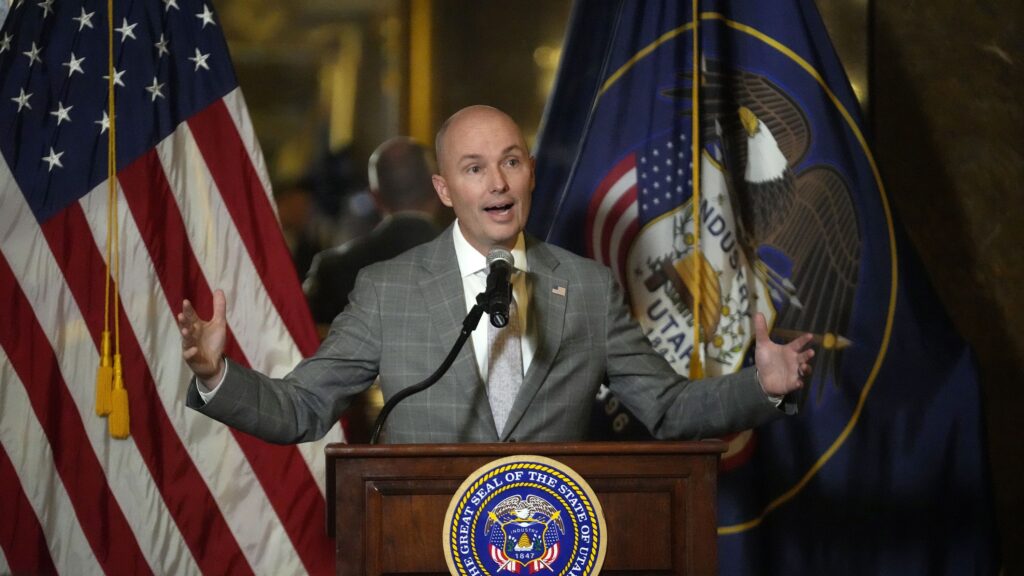SLOAN | Why you should vote for alcohol delivery


As with every election in a state possessing such an affinity for plebiscitary eruption as Colorado, there are a number of propositions and constitutional amendments presented to the voters on this year’s ballot.
There are some good ones – Amendment E extending the homestead property tax exemption to the surviving spouses of military veterans, and Proposition 121 reducing the state income tax rate to a more growth-conducive 4.4%.
There are some truly awful ones – Proposition FF to raise taxes for a universal school lunch program, Proposition 122 to decriminalize psychedelic mushrooms, and, for Denver voters, one to charge property owners a tax to fund a legal defense program for people they find themselves forced to evict.
The above cases are pretty obviously positive or egregious on their prima facie merits. Others deserve a little more examination.
Proposition 126 falls into this category. Alcohol seems to be a perennial fight in Colorado, and this year’s ballot includes three alcohol related measures. Prop 126 allows restaurants, grocery stores and liquor stores to sell alcohol via third-party delivery mechanisms, such as DoorDash and Instacart.
This seems a logical evolution. For better or worse, the societal trend is inclined more and more toward home delivery of… virtually everything, including dinner. It is canonical to point out that not every new public appetite is beneficial, but it makes little sense for government to try and restrict this particular trend. The pandemic certainly hastened the shift to home-delivery but the convenience and comfort offered by it made it more or less inevitable, and the free marketplace adapted quickly.
Colorado has earned a bit of a reputation through the years as being a laboratory for radical ideas, using the hyper-plebiscitary ballot-initiative process to test out public acceptance of wacky proposals that other states (with the possible exceptions of California and Oregon) dared not try before seeing how badly they worked elsewhere. This proposition, blessedly, is not of that ilk.
Home delivery of alcohol is neither a radical innovation, nor without precedent. Thirty-one other states have similar laws on the books permitting it. Colorado permitted it as well, in fact, not so very long ago; during the heyday of the pandemic, third-party alcohol delivery was temporarily allowed under the governor’s emergency orders, as a way to help keep restaurants afloat. With the expiration of the emergency degree, so went the allowance of DoorDash bringing you wine with your dinner.
And now hear this: restaurants and liquor stores are still allowed to deliver alcohol, and have been for around 16 years, provided they have a dedicated employee tasked with the role of doing so. All to say that this is hardly an untested proposal.
There are compelling economic reasons as well, beyond simple fealty to a free market which has adapted to meet the demands of the consumer who increasingly values convenience. It is no secret that small businesses are under exceptional financial strain, service-based businesses like restaurants and liquor stores perhaps especially so. Name the scourge – chronic worker shortage, punishing labor and wage laws, choked-up supply chains, lingering inflation and looming recession; if you happen to be a restaurant owner in this economic environment, you are grasping for whatever option exists to control expenses, add value to what you offer and keep your business extant. DoorDash has crunched the numbers on what most of us would deem obvious and found that adding alcohol to a restaurant’s delivery menu increases the average order value. And having the ability to utilize a third-party delivery platform rather than try and hire a dedicated employee to do it in this environment could be a sink-or-swim detail for a business that operates on such tight margins.
It is reasonable to be concerned about potential issues surrounding increasing access of alcohol to minors. And it is reasonable to expect that 16-year-old kids will try to get alcohol delivered to them. Kids these age also smoke tobacco, do pot and procreate. But there are laws and mechanisms already in place to try and deter this; if a restaurant or liquor store sells to a minor they stand to lose something of substantial value, i.e. their liquor license, which represents almost the entirety of their capital plant. Similar sanctions would apply to the delivery service, which would be subject to fines and penalties substantive enough to provide a financial incentive to follow the law and ensure their drivers make the same verifications that a bartender or liquor store employee does now. More, in fact, as most delivery platforms now employ enhanced, two-step ID verification, requiring customers to upload their ID’s before placing an order, and scanning them on an app at the door before receiving it.
On the balance, Prop 126 simply aligns Colorado law with reality, which is something so uncommon in the last several years as to virtually compel a “Yes” vote.
Kelly Sloan is a political and public affairs consultant and a recovering journalist based in Denver.












